Sheep with a view: Norway's beauty through the eyes of its least suspecting inhabitants
Photographer George Turner devised an idea to capture the real essence of Norway through the eyes of an unlikely candidate to create Sheep With A View
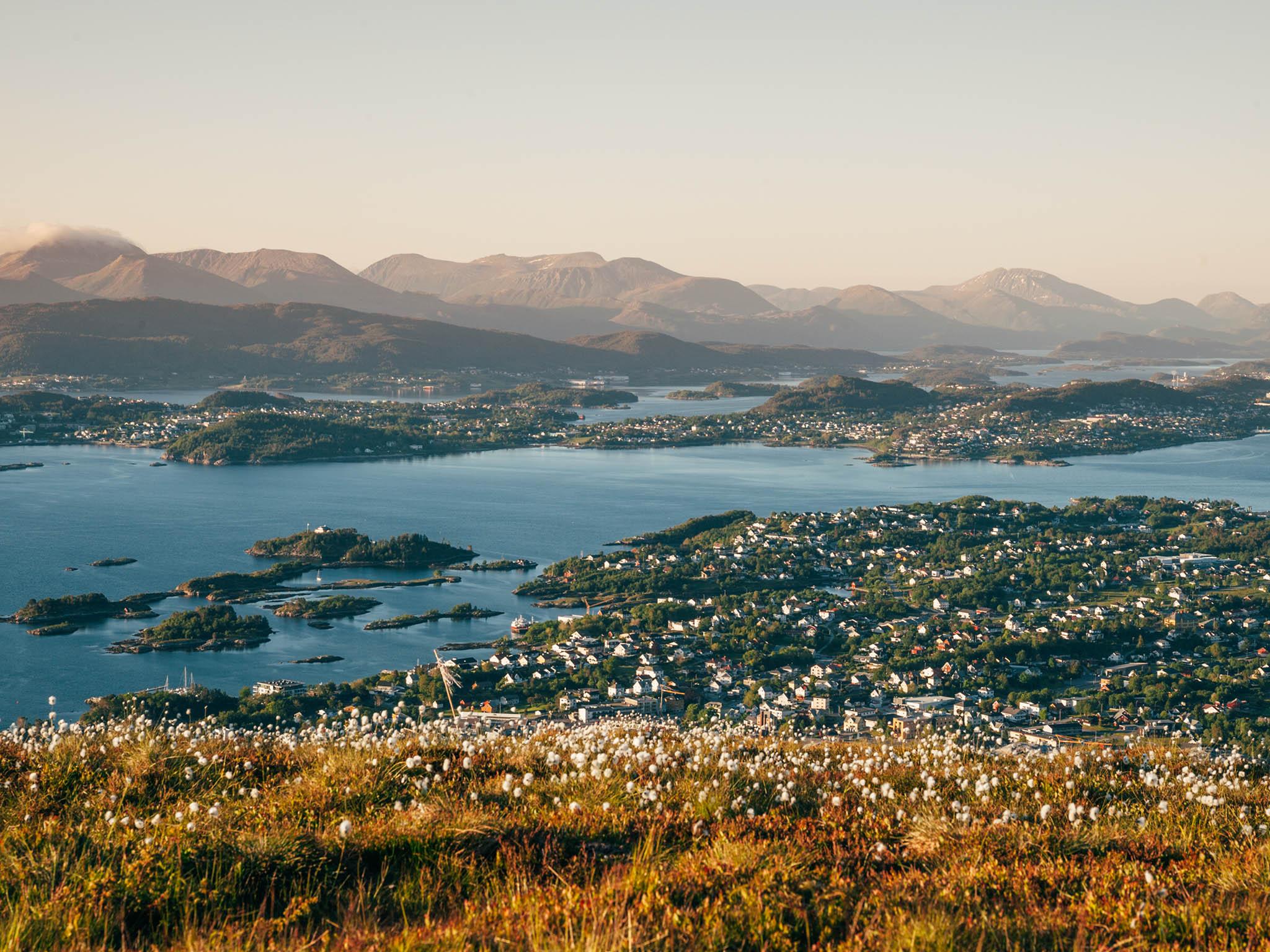
Your support helps us to tell the story
From reproductive rights to climate change to Big Tech, The Independent is on the ground when the story is developing. Whether it's investigating the financials of Elon Musk's pro-Trump PAC or producing our latest documentary, 'The A Word', which shines a light on the American women fighting for reproductive rights, we know how important it is to parse out the facts from the messaging.
At such a critical moment in US history, we need reporters on the ground. Your donation allows us to keep sending journalists to speak to both sides of the story.
The Independent is trusted by Americans across the entire political spectrum. And unlike many other quality news outlets, we choose not to lock Americans out of our reporting and analysis with paywalls. We believe quality journalism should be available to everyone, paid for by those who can afford it.
Your support makes all the difference.Every summer, Norway’s sheep are let loose. One of the Nordic country’s most populous animals are free to roam wherever they please across the country's diverse and incredibly stunning 385,000sq km area.
The sheep are unsupervised and find themselves in some of the most remote places imaginable and what they see has been captured by photographer George Turner.
“Norwegians see themselves as being like the sheep,” George said. "They are cooped up in the colder winter months, and when summer comes, the gates are literally opened and the sheep see more of the country than anyone else.”
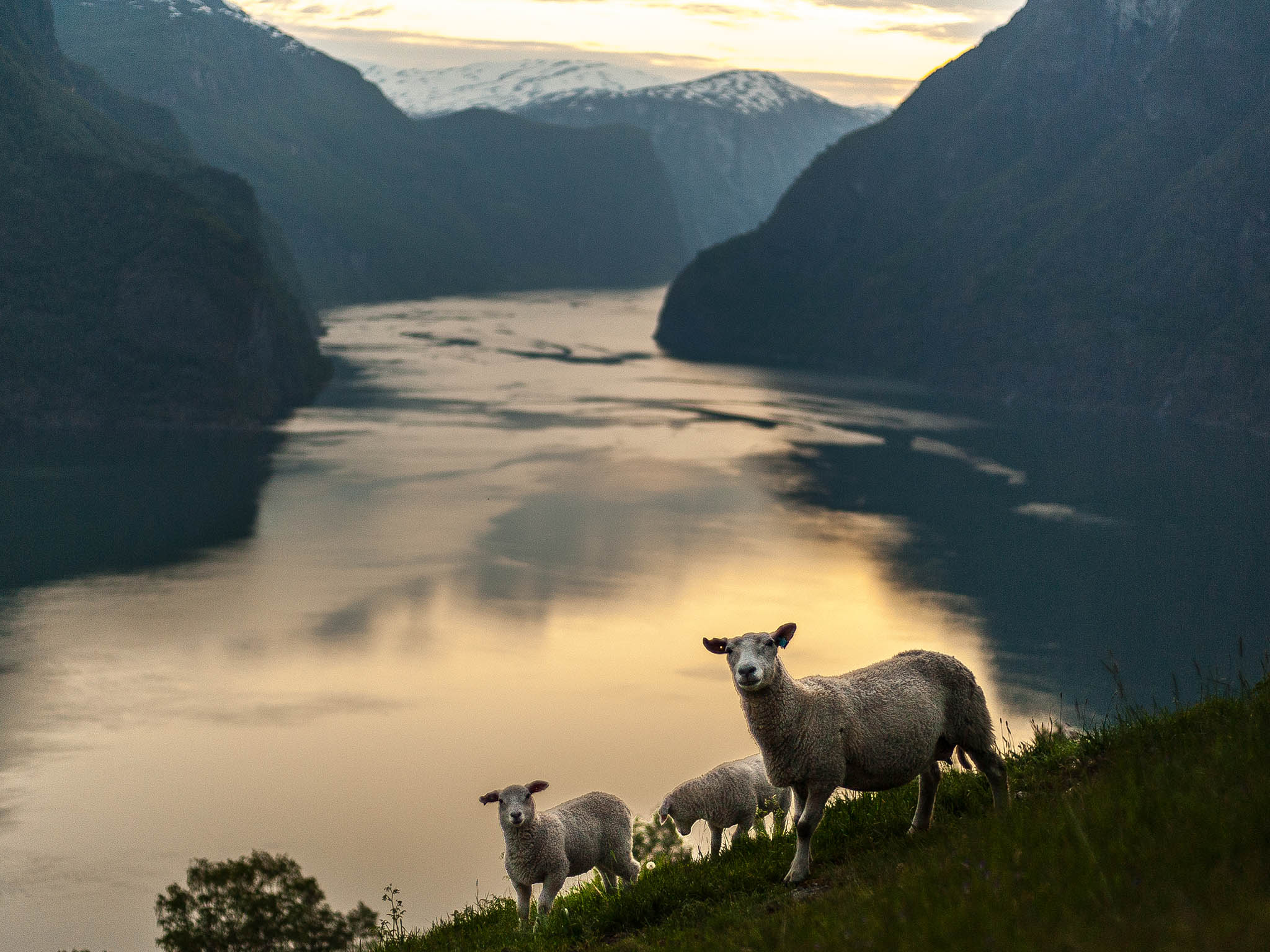
Since the 1957 legislation – known as allemannsrett law – people have legally had the right to access privately owned land whilst out walking, but sheep have been paving the way for finding Norway's most beautiful view for years.
Following four sheep across the distinct areas of country, from Trøndelag in the centre and spanning the south, north and Fjord Norway in the west, George, who worked with London advertising agency mr. h on the idea, spent 20 days documenting Norway through their eyes to share the almost untapped scenery. Every image is, unbelievably, somewhere sheep were found to be.
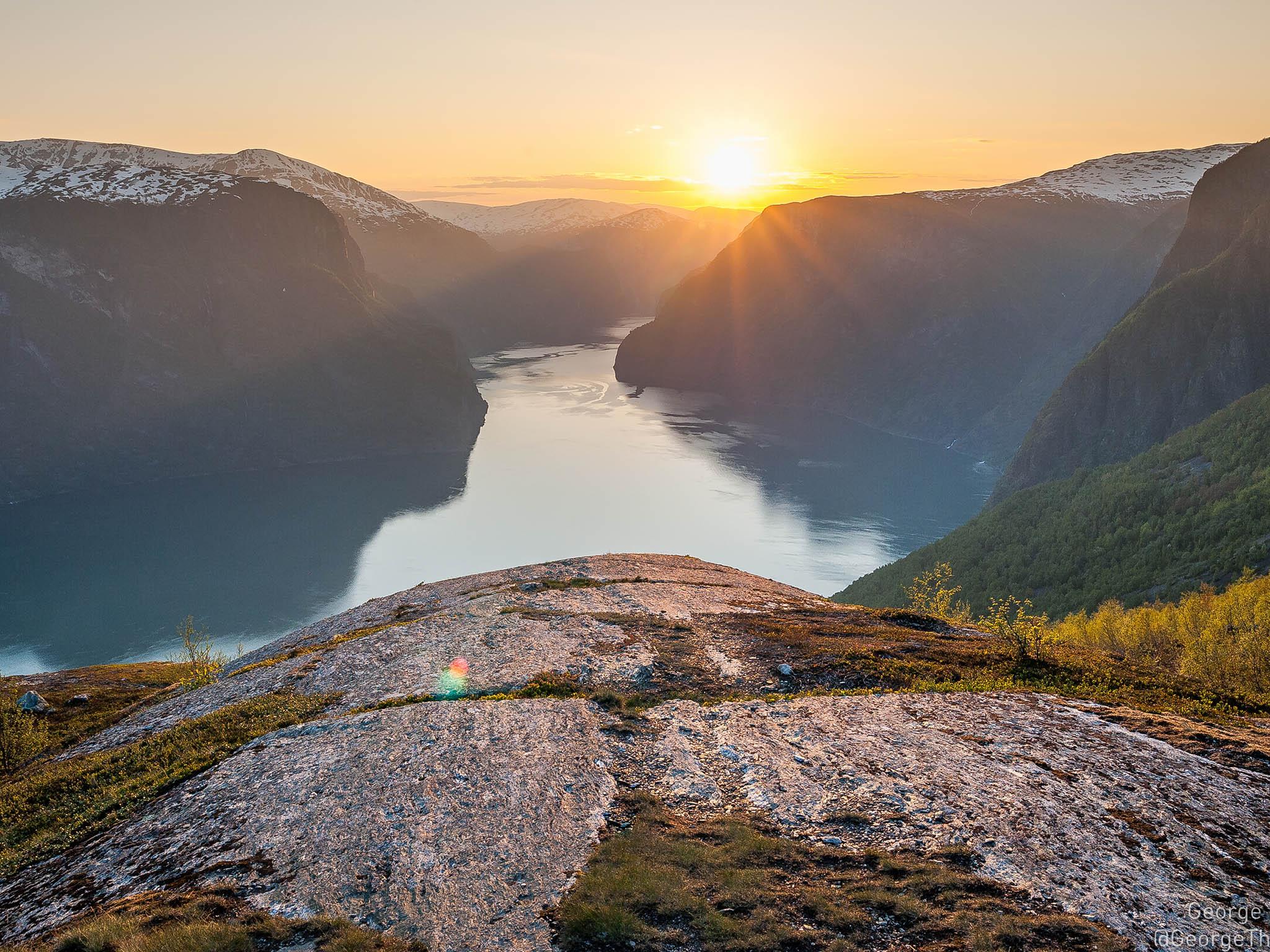
About 45 per cent of the country is ideal for grazing so letting the sheep free to roam makes practical sense. However, the sheep are still looked after, as farmers usually check on their flocks about once a week during the roaming period.
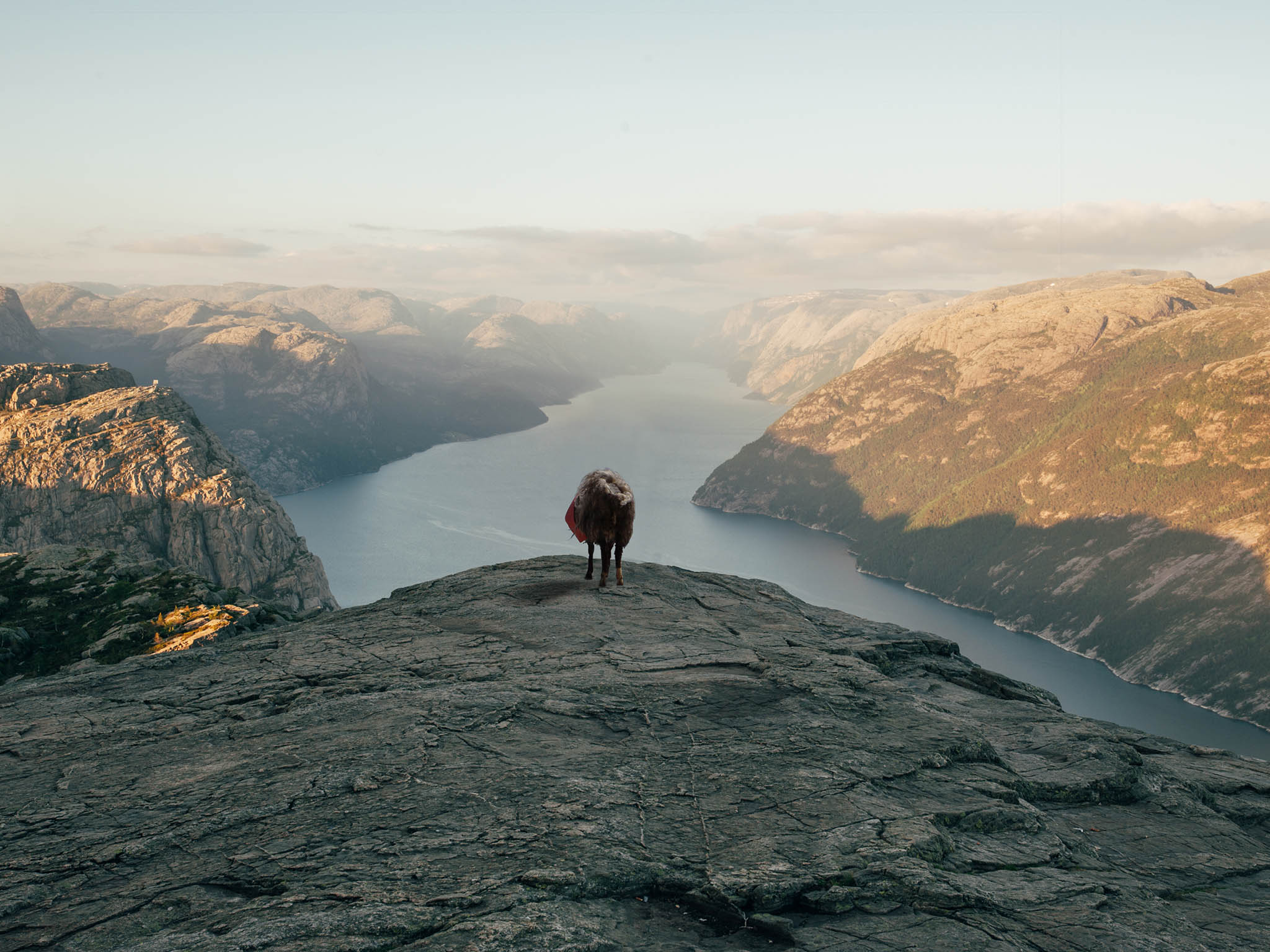
“I wanted to take the same journeys and paths of the sheep,” George said. “But often there are no paths, or some are washed away by the mud slides in the winter.
“The marked routes are very obvious, but often turned into tiny tracks only used by goats and sheep which they carve out themselves. So I just followed them and see where it took me.”
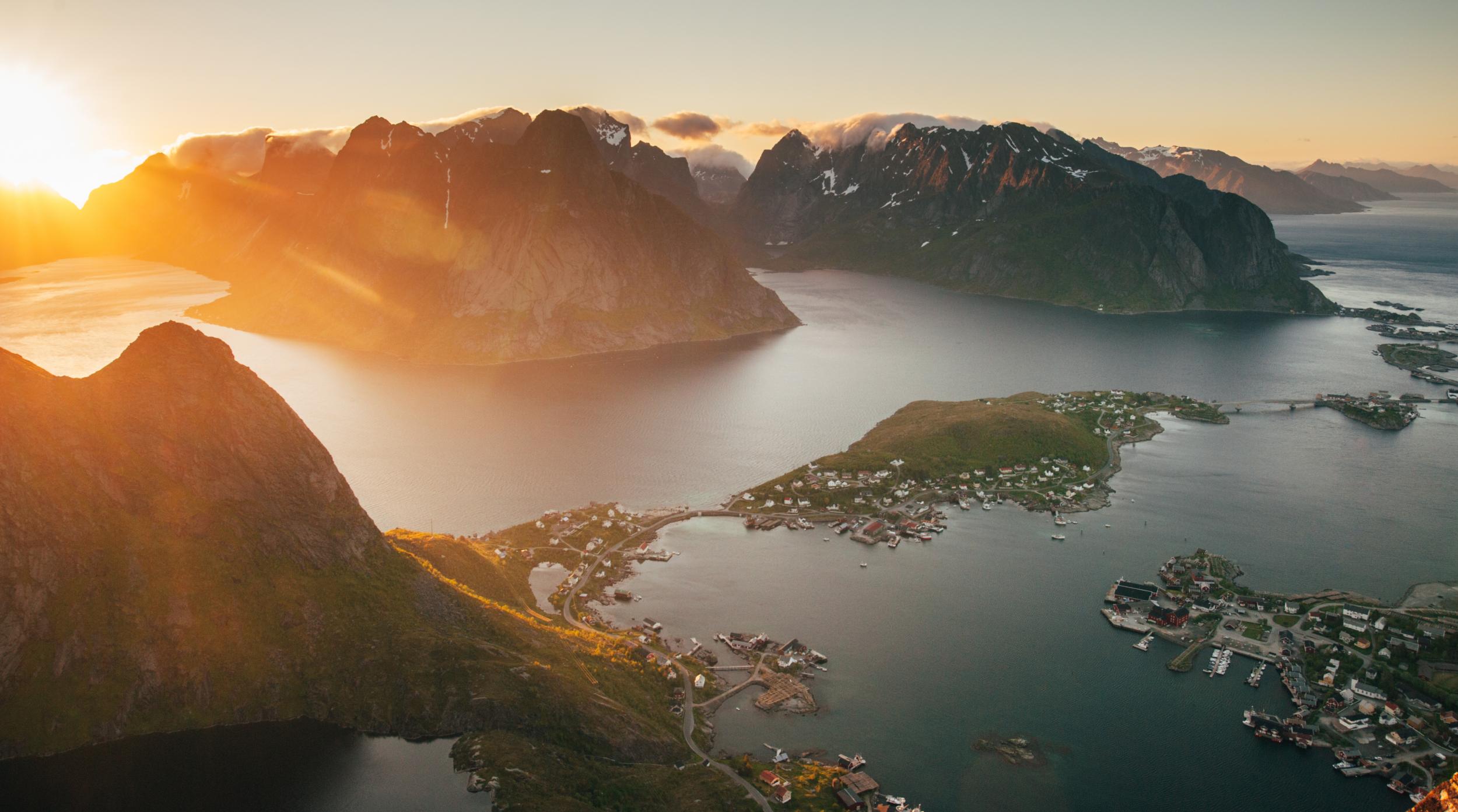
The best view George found was after following one of these tiny paths only four-legged animals used. “Reinebringen had no path; imagine climbing up wet, sheer rock faces. That’s what the sheep did, so that’s what I did too,” he said.
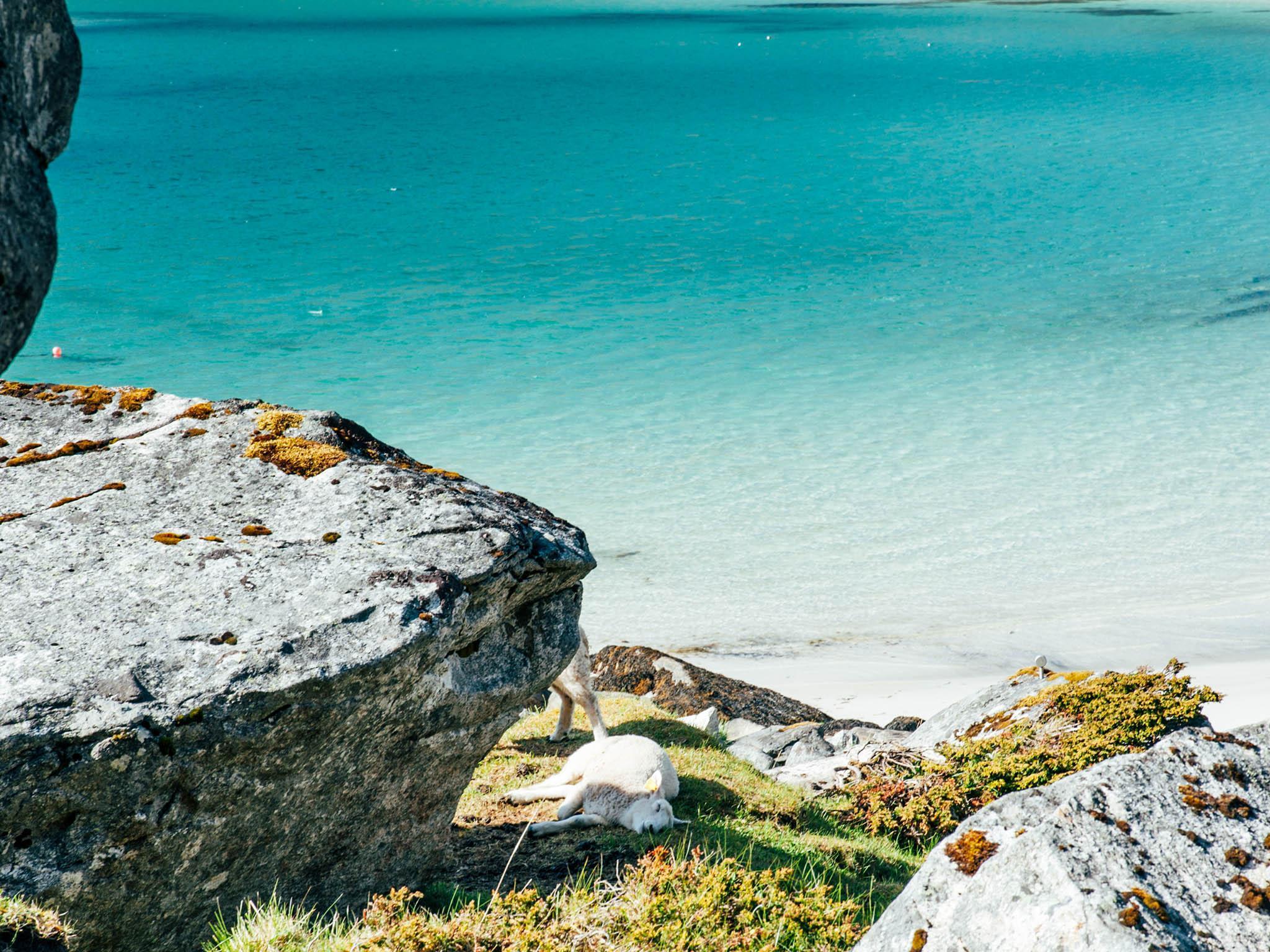
“I’m convinced the sheep pick areas to graze that have the best views. I never found them in any dark or dingy areas. On the downside of constantly seeking the best view, at the bottom of some mountains and steep areas, there are dead sheep that must have fallen while attempting the climb.”

In a bid to get to the same areas as the sheep, George said he had to do a lot of wading through water, along with the occasional swim. But the sheep often have the luxury of being loaded onto a farmer’s tractor if they are being moved. And when he’d walked too far to make returning back to civilisation worth it, he camped on the mountainsides.
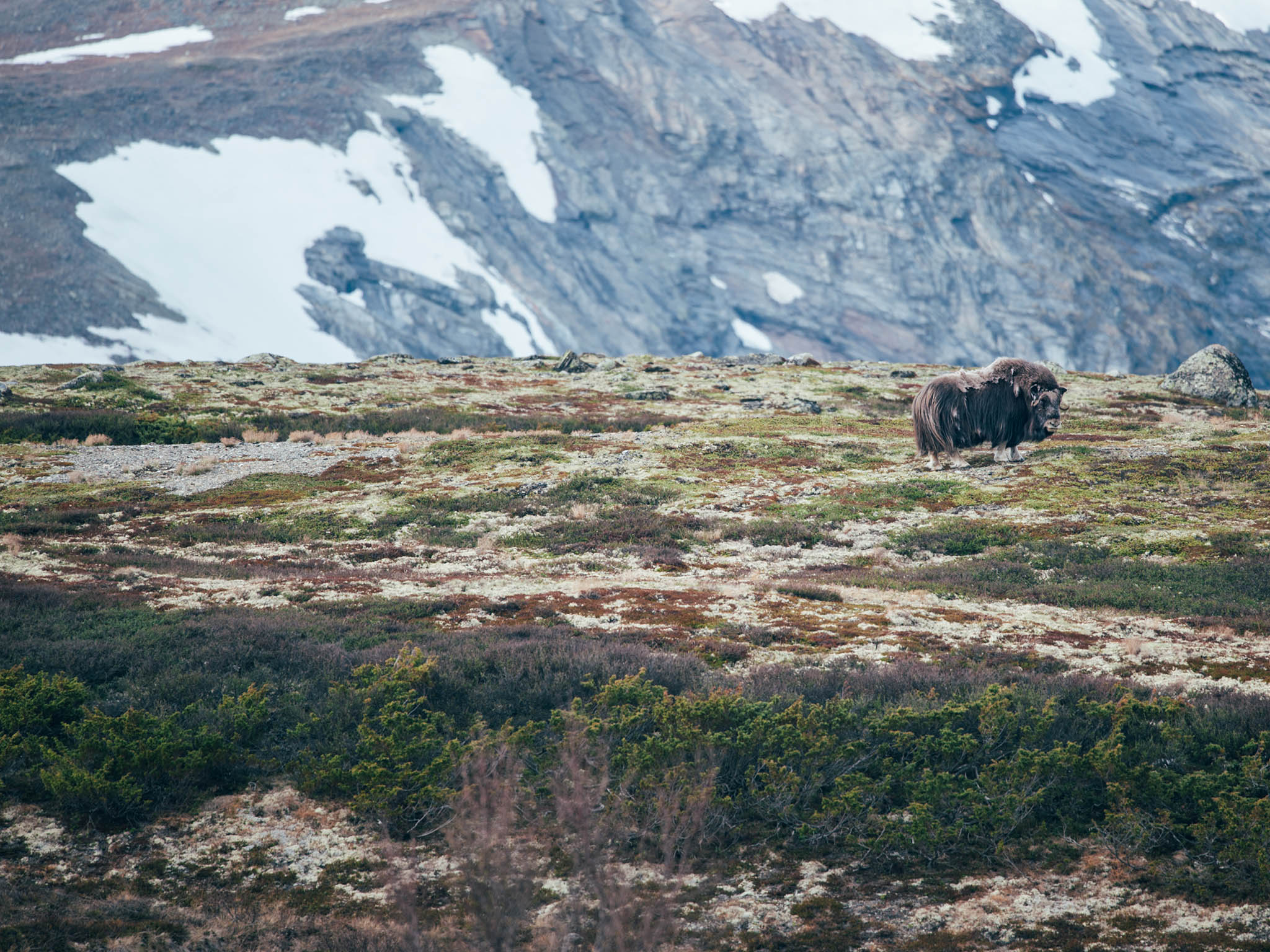
As well as the tough conditions, he also had to adapt to the light. Norway is almost in constant light during June and July. The lowest the sun gets to is equivalent to a sunny November sunrise in the UK.

“My shooting day was turned upside down. The best times for me were between 9pm and 3am, where I would get this insane golden light that lasted for hours.
“Between 8am and 3pm the light is so harsh and very, very bright and there is no shadow or contrast and nothing interesting to take shots of, so I used this time to sleep. But I would still see families hiking and dog walkers; life still carries on and people do normal things at very abnormal times.”
George Turner worked with Mister-h.com and VisitNorrway.com on the Sheep With a View project
Join our commenting forum
Join thought-provoking conversations, follow other Independent readers and see their replies
Comments